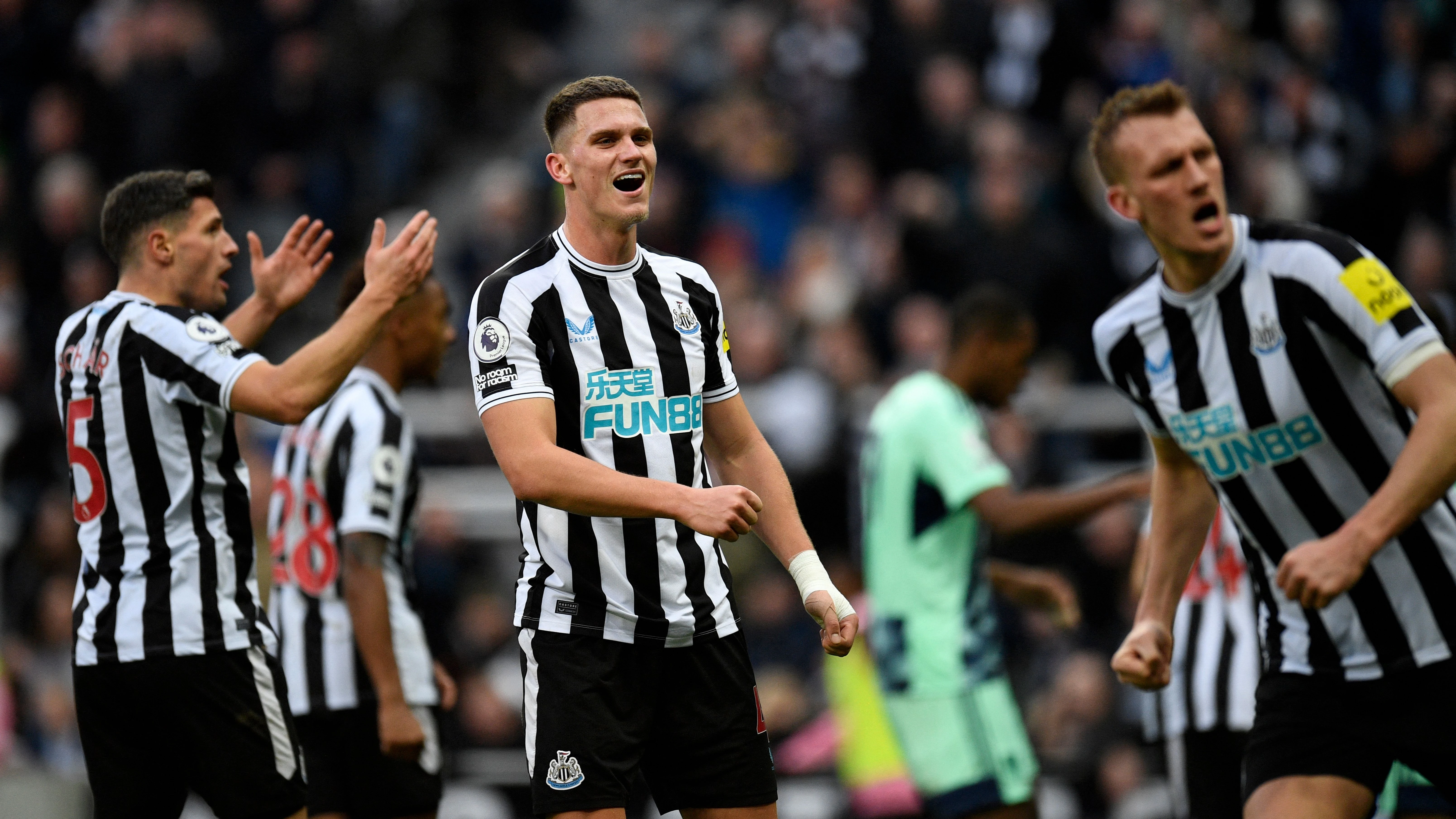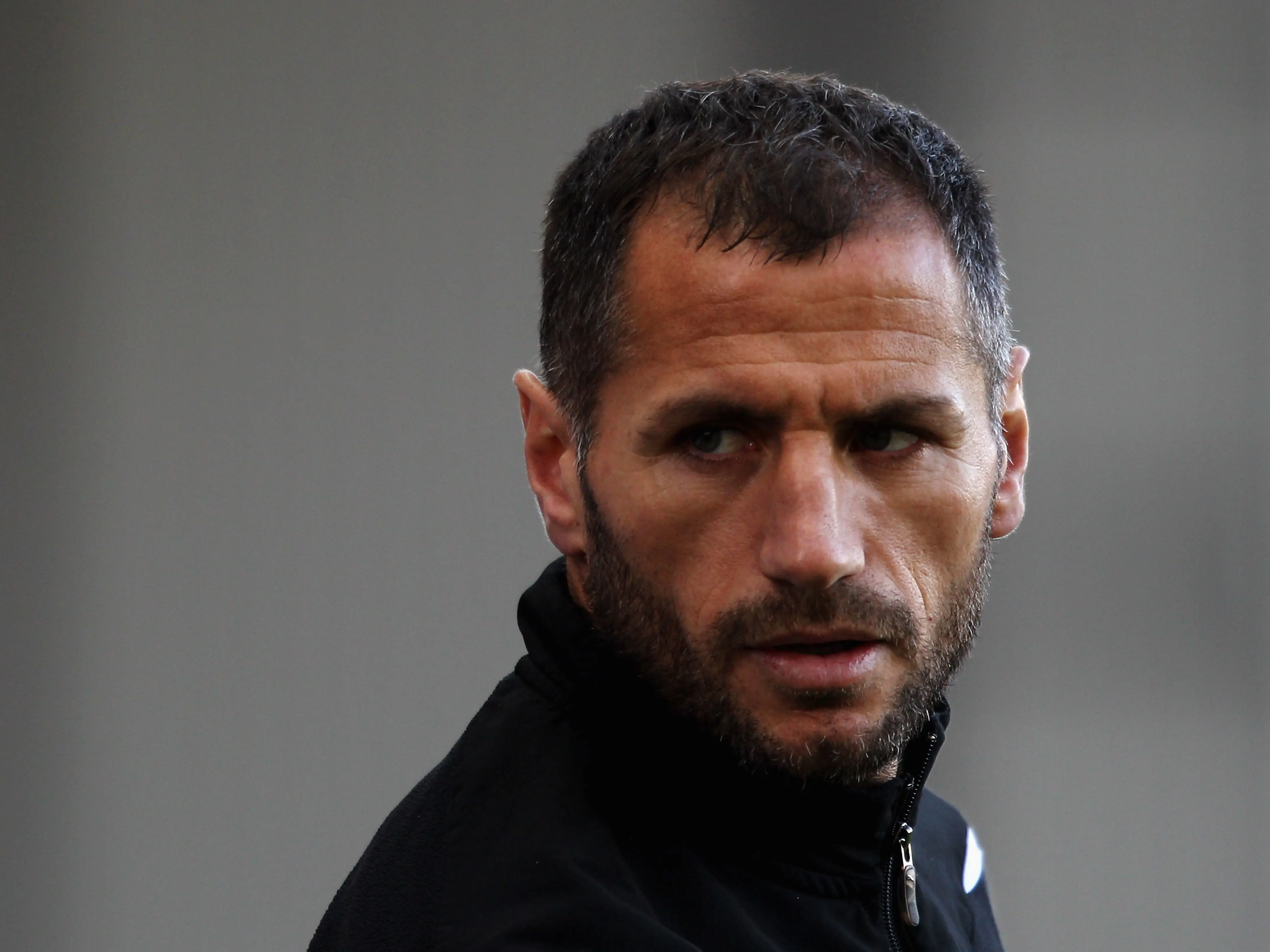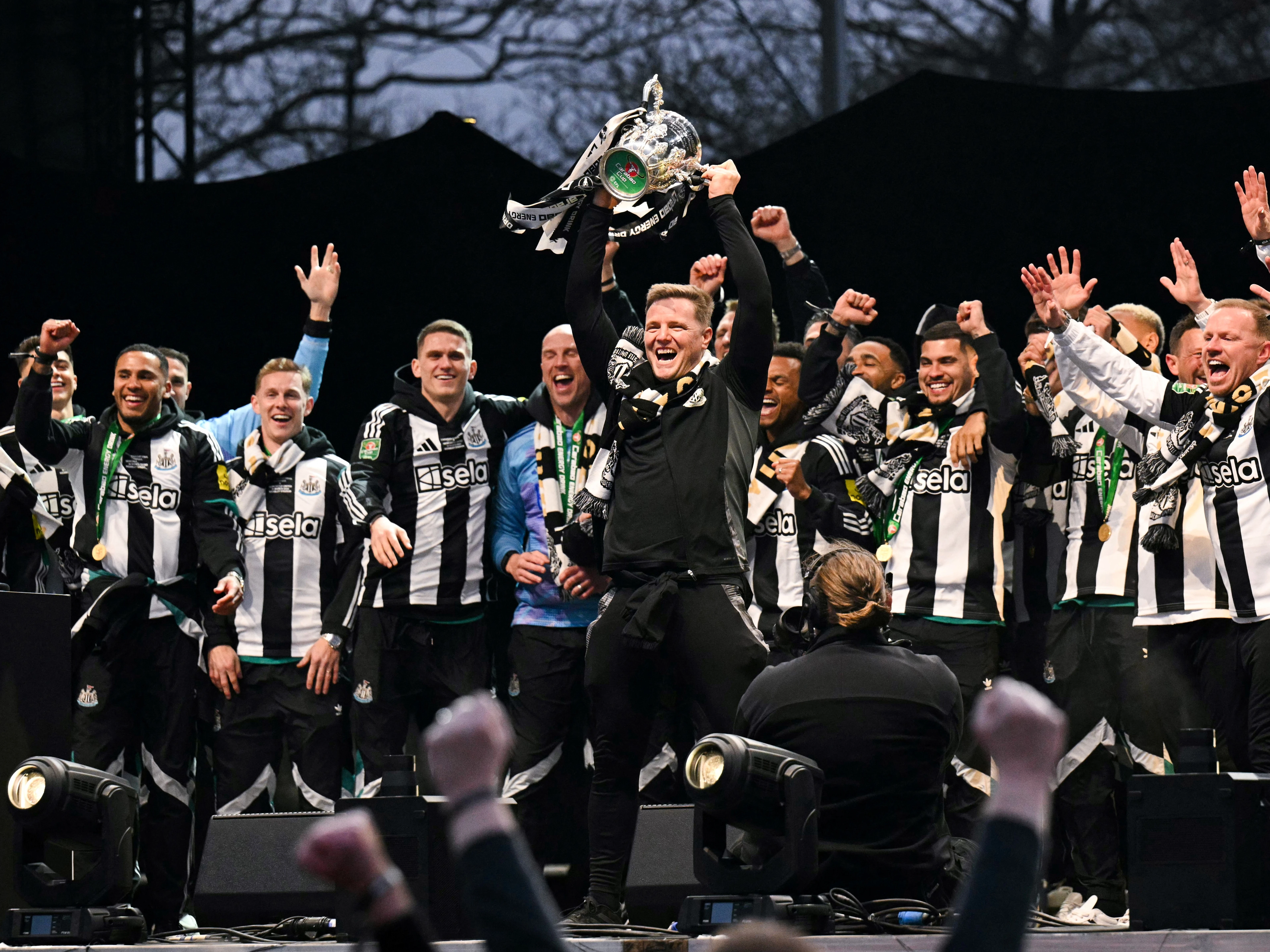"I'm very competitive – I never want to lose and I do everything that I think is good for the team or good for me so that we don't lose. I'm quite calm in the sense that if things get heated I can control myself. But I'm not calm in a way of not speaking.
"You know me – you know that I'm not quiet or anything. But maybe I can imagine from the outside you don't see me talking all the time. I'm not the first one who goes to the referee so maybe that's why people think I'm quiet. I'm controlled, but I'm not quiet or holding back. Of course I've got emotions. But I think I can control them really well."
That is a skill in itself and a big grin spreads across the Dutchman's angular face when it is suggested that, as a centre half with a six foot four inch muscular frame, he would actually prove pretty effective if he became involved in those heated moments we can politely refer to as altercations. "Of course I want to! But there are cameras and stuff," he laughs, "so you have to be careful."
Botman – who was born three months after Sir Bobby Robson took charge at St. James' Park – joined Newcastle in the summer and formed immediate bonds with those around him in Eddie Howe's side. It’s been "amazing so far", he enthuses. He's "living the dream" in English football and "exciting times are coming" to Tyneside – a sense that helped convince him he was making the right choice last June.
His move felt like a long time in the making, given the club's interest became public knowledge well over a year ago. The former Lille man is considering his words when Sean Longstaff walks in. "I'm happy you came here," says Botman's teammate and friend. "Mention me please!"
There is a chuckle and nod and we're back to it. Botman found the second half of last season a challenge. "The last four or five months were, yeah – quite chaotic, in the sense that outside the pitch you have to make choices, you have to talk to people," he says, reflecting on a time when his future was the subject of great debate. "At the end you just want to play football, but that's not how it goes. It's part of the whole thing, part of the job. I stayed calm but still, there's a lot going on in your mind. I'm happy it all got done."
The path Botman followed could have been quite different. He is from a sporting family who "tried to give me a hockey stick," he explains. "I tried it but I hated it, to be honest. I started football when I was four or five, and tennis when I was six, I think. I played both until I was nine or ten."
He still plays tennis in the close season – he had to give it up when he joined Ajax – but it is interesting to learn that he feels he may have struggled with the psychological requirements of such a solitary sport. "Tennis is very difficult mentally. I don't know if I'm capable of this," he adds. "But in football, you're in a team sport and if you see someone is really struggling in the game, your team will help you, pick you up. It's mentally easier because you have help on the pitch.
"In tennis, it's all you. I like, in football, the team spirit, that together you're doing something, can push and help each other and also tell each other if something is not good. It's really a team thing."
He grew up in the fabled Ajax youth system. His best qualities now were also his strengths then but as a teenager he began to sense a distance between his club's uncompromising stance on their style and his own thoughts on how his talents would fit in there. Looking back, he can appreciate the grounding his decade there gave him.
"Now I can tell it really helped me get better, especially with the ball, knowing the game, knowing how football works," he begins. "Ajax is one of the best youth academies where you get to learn this. But at the moment, you don't really realise this.
"When you get a little bit older, like 17 or 18, I also realised Ajax is maybe not the club for me, with the philosophy they have and the way of playing football. I'm more (about being) physical and (playing) football in a mixed way, and Ajax is really (just about playing) a football way. But in the end it helped me a lot to get to a high level of playing possession football. I'm really pleased that I had ten years in their youth, and it really helped me.
"I had a situation where I was one of the better ones of the team but I never had a situation where I was the main guy, or the guy who goes two ages up to play with older people. I always had the feeling I was good enough but when I got older, I realised a bit that maybe Ajax, the way of football, doesn't really fit my profile. I went on loan to Heerenveen for one season and after I signed a new contract at Ajax but at the same time, Lille came and I knew for myself that Lille was a better option for me to go to."
When he won Ligue 1 there in 2021, he looked like a potential world-beater in waiting. Botman played alongside José Fonte, by then well into the twilight of his top-level career. Fonte was a fixture in Southampton's rise from League One to European football and recognised and appreciated the more robust aspects of his centre back partner's game – traits that would serve him well in England.
"He definitely said to me, 'I think you are really like a Premier League player already' from the first couple of weeks, I think. This guy, it's unbelievable how he helped me, got me through. I was still quite young when I was starting for Lille – I was 20 – but with his experience it felt like I'd already played for five years in that league.
"He's such a great guy. He's my friend. I can only thank him for what he did for me. He's always talking about his time from Southampton and he enjoyed every second of it. He said the Premier League is the main thing in football. I have a really good relationship with him and he helped me a lot."
That league title in his first year in France helped pave the way for his eventual move to Tyneside. Botman felt Ligue 1 was a natural halfway point between the Netherlands' Eredivisie and the Premier League. "You can compare it a little bit to the Premier League. I have to say everything in the Premier League is better, faster and bigger, but the French league is already a lot more physical than the Dutch league. It's faster, with better players.
"In that kind of area you learn how to get into the Premier League so it definitely helped me to make a move to England. In Holland, you really learn to have the ball and play football. In Holland they don't really like the fighting in football, and they really like possession play. It's a mix of both that really helped me to get to England."
In the same way Fonte led him in the early days in France, he now has a partnership with Fabian Schär that is the envy of the top flight. That it is such a new alliance at the heart of United's defence makes it all the more impressive. "We don't really have to say a lot and we already know from each other where the other one is going to go or what he's going to do. Sometimes you have this connection and it's just amazing to have."
That unexpected contribution from Longstaff earlier was a snapshot into what seems to be a tight-knit camp. Botman agrees. "I'm quite a social person so I don't really have problems getting to know new people. The people here are just lovely, man – so kind in the city, and it's really easy to settle down here," he says. "People ask me how I settled so quick, but the environment is such a friendly environment. Everybody is helping each other. Even at Lille, the first year also had a team feeling, but this is just like everybody together. The city, the fans, the people around the club, you, the coaches, me – everybody is just on the same page. It's amazing to see."
On Sunday, he will have the chance to become part of Newcastle folklore when they face Manchester United in the Carabao Cup final at Wembley. Botman is still waiting for his first goal in black and white. That wouldn't be a bad time to get it, if it doesn't arrive this afternoon.
He smiles. "I spoke yesterday with (Jamaal) Lascelles and he said, 'listen, if you score at Wembley, you're the guy'. I know it's about time to get a goal."




